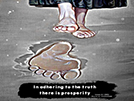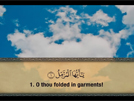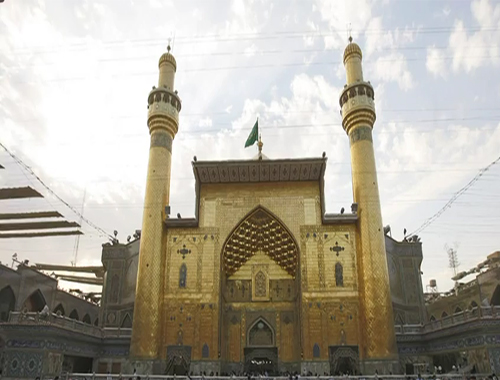Distribution of Wealth
- Details
- Hits: 2713
Distribution of Wealth
Observation and social experiments under various social and economic systems show that from the point of view of physical and mental capabilities human beings widely differ from one another. What we are talking about is the innate and natural disparity and not that caused by social and economic injustice and privations which can be rectified by the removal of its causes. Such differences are caused by such factors as the lack or abundance of nutrition, the knowledge of its correct methods or the educational and training facilities, and do not constitute a natural disparity.
These differences should not be accepted as compulsion of destiny and every effort should be made to establish a just social and economic order.
However it appears that even after doing away with these artificial differences, there will still be variations in the physical and mental capabilities of the human beings, and their ways of thinking and doing will always differ even under the most equitable social and economic system.
As the result of this innate intellectual and practical disparity the proceeds of the economic effort of human beings cannot naturally be equal. Two fishermen go to the sea to catch fish. Both of them try from morning till evening. One of them does not catch more than fifteen fish, whereas the other on account of being more skilful catches within the same period of time and with the same amount of effort as many as sixty, viz. four times what the first man caught. In one year there is bound to be an appreciable difference in the economic positions of these two men. Hence, even if we admit that only proceeds of labour can be the foundation of personal property, we cannot avoid the emergence of differences in the economic level of human beings.
The above was the case of the difference in the level of the two healthy and fit persons. But we know that more or less in every society weak and disabled persons are also
found. Their economic position will certainly be far worse than even that of the low‑income group and they will in all probability be living below subsistence level. Hence even under an economic system based on the natural principle of `property is the outcome of labour' we should come across `income less', `low‑income' and `high‑income' groups.
Should we content ourselves by saying that it is a natural necessity and that we cannot fight against nature? Hence, should we leave the three groups to their fate? Should we let the high‑income group remain plunged into luxuries; the low‑income group committed to hard work; and the income-less group doomed to beggary and humiliation? Or should we think of some remedy?
This remedy has taken different forms under various economic systems. Anyhow, the main objective is the same, that is, to achieve more equitable distribution of wealth, and for that purpose to take something from the high‑income groups and to give it to the low‑income groups or to spend it to meet their requirements.
A prominent part of the economic teachings of Islam is devoted to the steps which this divine system has taken to achieve equitable distribution of wealth. Some of the actions which the Muslims should take for this purpose have been described by the holy Qur'an as infaq (spending).
Spending
Islam has not left the high‑income people to themselves but has emphatically called on them to spend what they have in the way of Allah and for the welfare of the people.
The holy Qur'an says:
"You shall never attain righteousness until you spend (in charity) what you cherish, and whatever you spend, Allah is fully aware of it". (Surah Ale Imran, 3:92).
Describing the characteristics of the believers, the Surah al‑Shura, 42:38, says:
"Those who obey their Lord and who keep up prayers and whose affairs are a matter of counsel and who spend (in charity) out of what We have provided them ".
These and many other verses of the Qur'an exhort the rich to abandon love of money and spend it for the amelioration of the lot of the people.
The Surah al‑Baqarah, 2:177, warns the rich that they will not be regarded as the virtuous till they spend money in charity:
"It is not righteousness that you turn your face to the East and the West, but the righteous is he who
believes in Allah, the resurrection, the angels, the Book and the prophets; and gives his wealth for love of Allah to the kindred, the orphans, the destitutes, the wayfarers the needy for the redemption of the captives".
Having heard all these exhortations of the Qur'an, some devout Muslims asked the holy Prophet what portion of their wealth they were required to spend. In reply the following verse was revealed:
"They ask you what they ought to spend (in charity), say: That which you can spare". (Surah Baqarah, 2:219).
The Surah al‑Hashr, 59:9, goes a step further and lauds those pious Muslims who in spite of being needy themselves, gave preference to the needs of their brother and sister Muslims over their own:
"Those who had their homes in the city and had accepted the faith before their arrival, love those who migrated to them for refuge, and do not feel jealous for what has been given to them. They give preference to them over themselves even though poverty became their own lot. Those who are saved from their own greed, shall surely be prosperous ".
Generally speaking the Qur'an wants that out of his property and extra lawful earnings a Muslim should use a part to meet the moderate needs of himself and his family and should spend the rest in the way of Allah and for the welfare of the people. Otherwise he will either be guilty of extravagance or will commit a bigger sin of hoarding both of which have been severely denounced by Islam.
There are many verses in the Qur'an which denounce every kind of extravagance. We quote just one verse, as an example:
"It is He who produces all kinds of gardens (trallised and untrallised,) the date‑palm, the various
kinds of food crops, the olives and pomegranates, like each other and unlike each other. Eat o f their fruit when they yield fruit and pay the due o f them on the harvest day, and do not be prodigal. Surely Allah does not like the prodigal" . (Surah al‑An'am, 6:141).
In this verse it has been laid down expressly that the entire produce of a field or a garden is not meant for the personal consumption of its owner. Others also have a rightful claim on it.
In the following verses prodigality has been censured thus:
"Give to the near o f kin his due and also to the needy and the wayfarer. Don't squander your wealth wastefully. The squanderers are indeed Satan's brothers and Satan is ever ungrateful to his Lord". (Surah al‑Isra, 17:26 ‑ 27).
Prohibition of the hoarding of wealth
The holy Qur'an severely censures the hoarders of wealth and says:
"Those who board up gold and silver and spend it not in Allah's way unto them give tidings of a painful
punishment. On the day when it will (all) be heated in the fire o f Hell; then their foreheads and their sides and their backs will be branded therewith and it will be said to them. This is what you hoarded up for yourselves. Now taste what you used to board".(Surah al‑Tawbah, 9:34 ‑ 35).
These verses were revealed along with the verses regarding jihad, and it appears that they refer to those who in spite of their financial competence evaded contribution to the war expenses. From these verses we may deduce a general rule that so long as society is in need of money nobody should think of amassing it for himself or his dependants.
To keep money stagnant has been especially denounced in Islamic traditions. This denunciation underlines another aspect of Islam's fight against hoarding:
Imam al Sadiq (P) is reported to have said to one of his companions:
"A man on his death leaves nothing behind heavier and more laden with responsibility than cash".
His companion asked, "Then what should he do with it?" The Imam replied, "He should invest it in a garden, a farm or a house".
Spending categories in the verse on `spending' a number of categories have been mentioned, which may collectively be put under the heading of `the needs and the needy'.
Among these categories we find the following headings:
(1) In the way of Allah:
"Those who spend their wealth in the way of Allah ". (Surah al‑Baqarah, 2:262).
(2) Parents and near of kin:
"They ask you (O Prophet) what they shall spend. Say: What you spend (in charity) must go to your parents and near o f kin" : (Surah al‑Baqarah, 2:215).
(3) The orphans, the needy and the way‑farers:
"To the orphans, the needy and the wayfarers ". (Surah al‑Baqarah, 2:215).
This category includes all those who are unable to secure means of living because they have lost the head of the family, are unable to work, do not find a job, are away from their homes due to journeying or immigration and have no means of livelihood.
(4) Expenses of Jihad: A good number of verses are about spending on Jihadwhich includes the purchase of arms and equipment as well as providing the means of living to the fighters and their families.
On the necessity of such spending and its vital role in the security of human life the Qur'an says:
"Spend your wealth for the cause o f Allah, and do not cast by your own hands to ruin, and do good. Surely Allah loves those who do good" . (Surah al‑Baqarah, 2:195).
An overall study of the verses and the traditions on the question of spending shows that in the economic field Islam requires that: Everybody should contribute within his limits to the expenses of the useful social activities.
There should be no one left in the Islamic society having no means of living. The rich should not think that their entire income belongs to them. They should realize that on a part of it there is a claim of other Muslims also.
The Qur'an says:
"In their wealth there is a due share for those who ask for help and those who are under ‑ privileged ". (Surah al‑Zariyat, 51:19).
A society in which there are two classes of haves and have-nots is not an Islamic society.
The holy Prophet has said:
"He who sleeps satiated while his neighbour is hungry, is not a Muslim".
All this munificence should be to gain the pleasure of Allah and to serve humanity, so that the spender may attain spiritual progress and his brotherly relations with others may be strengthened.











